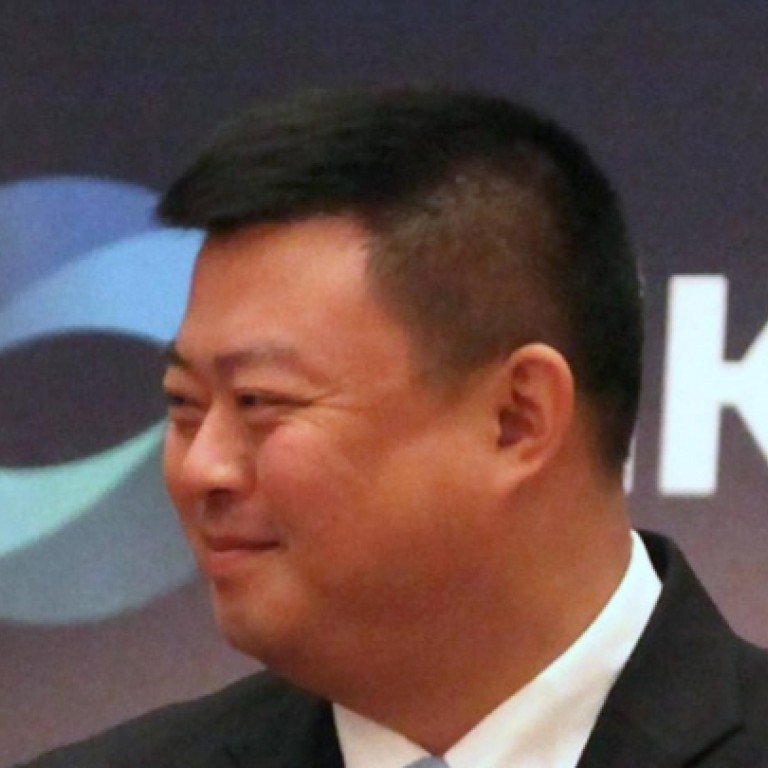
A man, a plan, a canal: Panama rival unveiled
Mystery Beijing businessman Wang Jing is due to tell the world today about his scheme to build a US$40b canal across Nicaragua
In just a few hours, the world should know more about a mysterious Beijing businessman who turned the global transport world on its ear this month after winning approval to build a US$40 billion canal across Nicaragua, in a direct challenge to the Panama Canal.
If it goes ahead, the new canal would underscore the growing influence and power of China's business sector, just as the creation of the Panama Canal emphasised the arrival of the United States as an economic power at the start of the last century.
Wang Jing, 41, is due to brief media later today in a news conference in Beijing on his ambitious plan to challenge the Panama Canal, whose construction, completed 99 years ago, caused a brief war and resulted in the creation of a new country.
Wang Jing made his presence felt on the mainland when he bought into the cash-strapped Xinwei Telecom Enterprise Group in 2010, a pioneer in the mainland's 3G telecommunication technology industry.
Xinwei had developed the 3G wireless communication technology SCDMA, better known as Dalintong, in 2004. But the technology was overtaken by TD-SCDMA in 2009, leaving Xinwei facing substantial losses when Wang rescued it by purchasing a 40 per cent stake.
Wang remains an enigma after more than 20 years in businesses ranging from mining and airlines to telecommunications, according to , an online publication based in China.
Wang recently boasted of his personal connection with the Nicaraguan president, Daniel Ortega, during an interview with the mainland magazine .
It is not the only success that Wang has enjoyed in the impoverished Central American country. Six months ago, Xinwei won a full 4G licence in Nicaragua, which will help to connect six million Nicaraguans with the rest of the world.
It will deploy its home-grown broadband wireless technology, McWill, in building a network that aims to start operating in 2015.
The sheer size of the Nicaraguan project is breathtaking. Construction would cost an estimated four years' worth of annual gross domestic product, and would probably be three times longer than the Panama Canal. The 77-kilometre Panama Canal took more a decade to build, after the original French consortium gave up, leaving the Americans to complete the work.
But the biggest surprise was probably Wang's arrival on the scene. He appears to have little, if any, experience in major infrastructure projects, and his company, HKND Group, was registered just last year in the Cayman Islands.
Industry observers remain sceptical that Wang can succeed in such a huge undertaking. Evan Ellis, a professor of national security studies at the US government's National Defence University, told Reuters: "Are international shipping companies going to trust a one-guy shop with minor telecommunications experience to be the system integrator on a US$40 billion project in a country whose transparency is already subject to question?"
Greg Miller, a shipping consultant at IHS Fairplay, a global maritime intelligence company, was also highly sceptical.
"The Nicaragua canal will never be built and the only people who'll financially profit from this proposal are the consultants paid to do the feasibility studies," he told Reuters.
But Wang remains upbeat about the project and predicted that Wall Street investment bankers would help arrange the funding.
Apart from his Nicaraguan links, Wang seems well-connected in China. Top-tier official leaders, including President Xi Jinping, Premier Li Keqiang, and vice-premiers Zhang Dejiang and Wang Qishan have all visited Xinwei and are depicted on its website, which does not mention HKND.
Despite Wang's apparently powerful connections, Beijing is playing it cool, at least for the moment. A Ministry of Foreign Affairs spokesman said the project was purely a commercial deal, since China does not have diplomatic relations with Nicaragua, which does, however, have diplomatic links with Taiwan.
